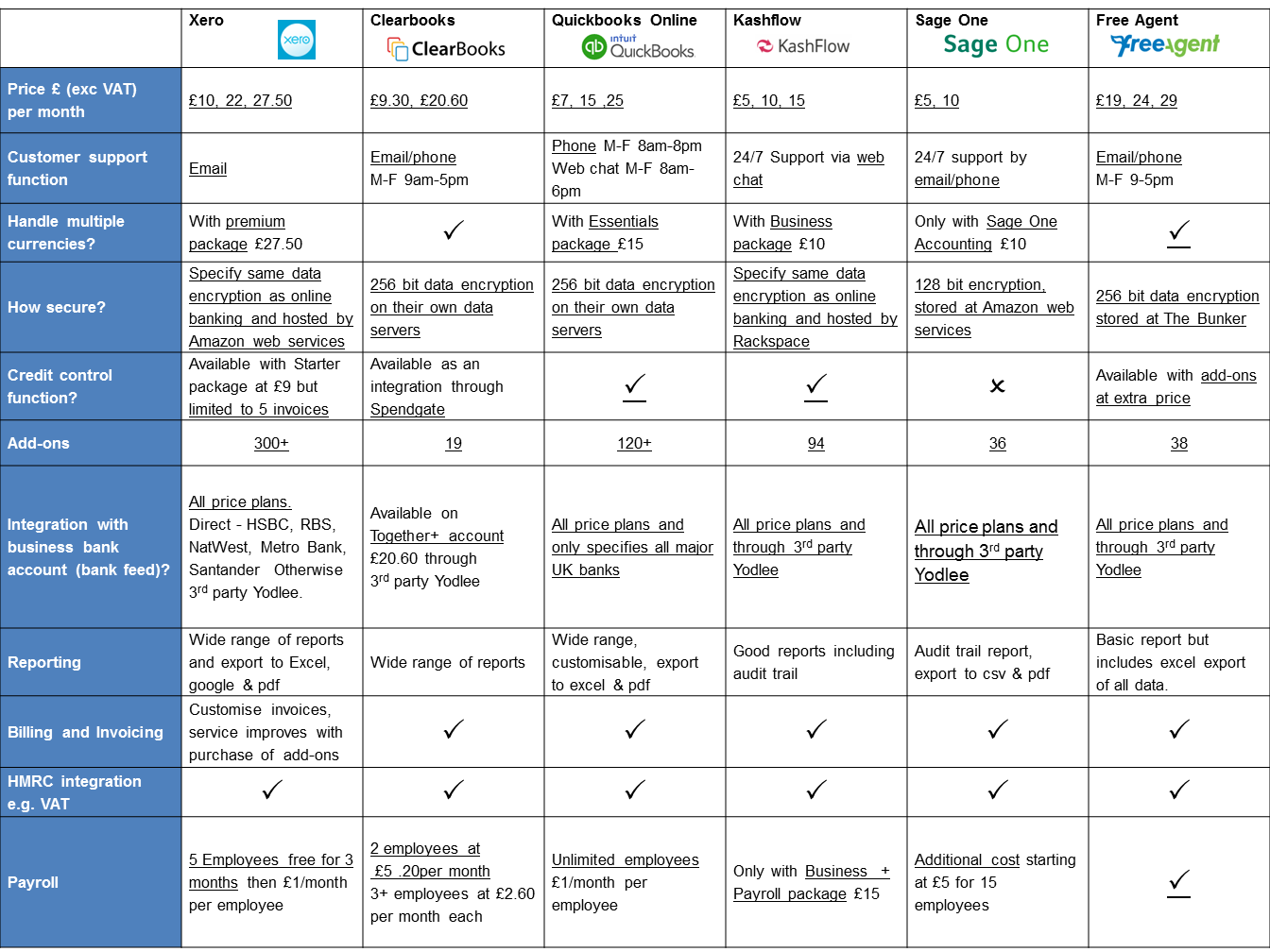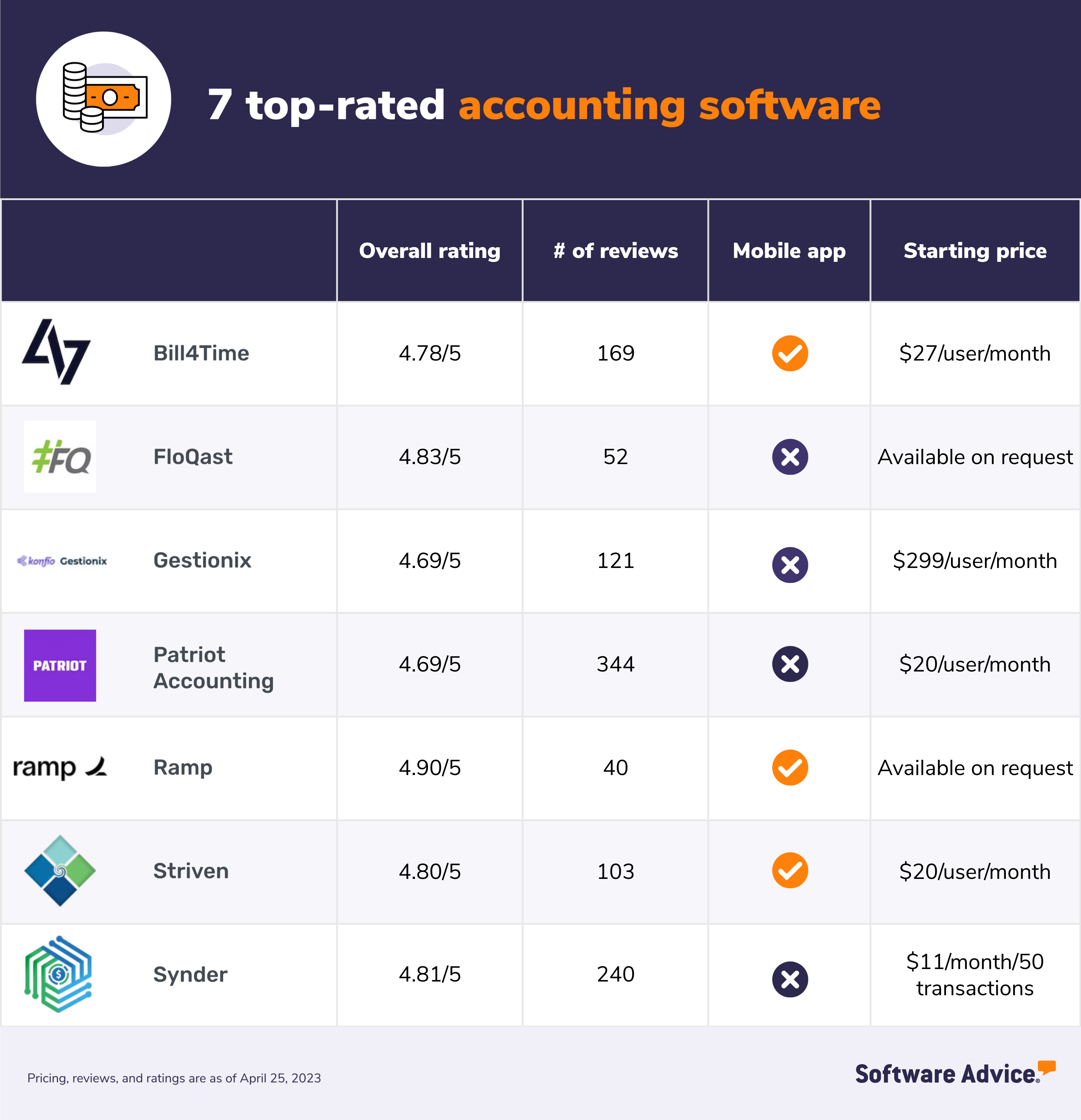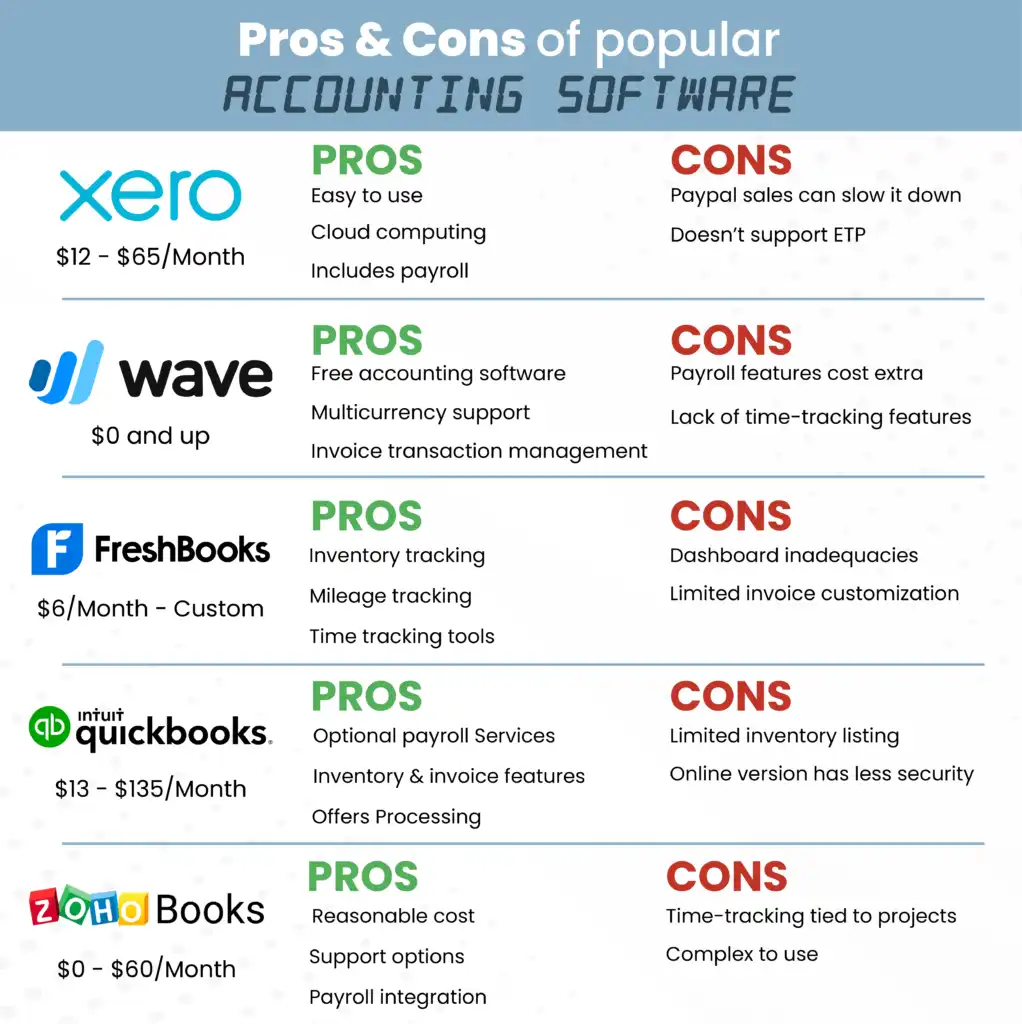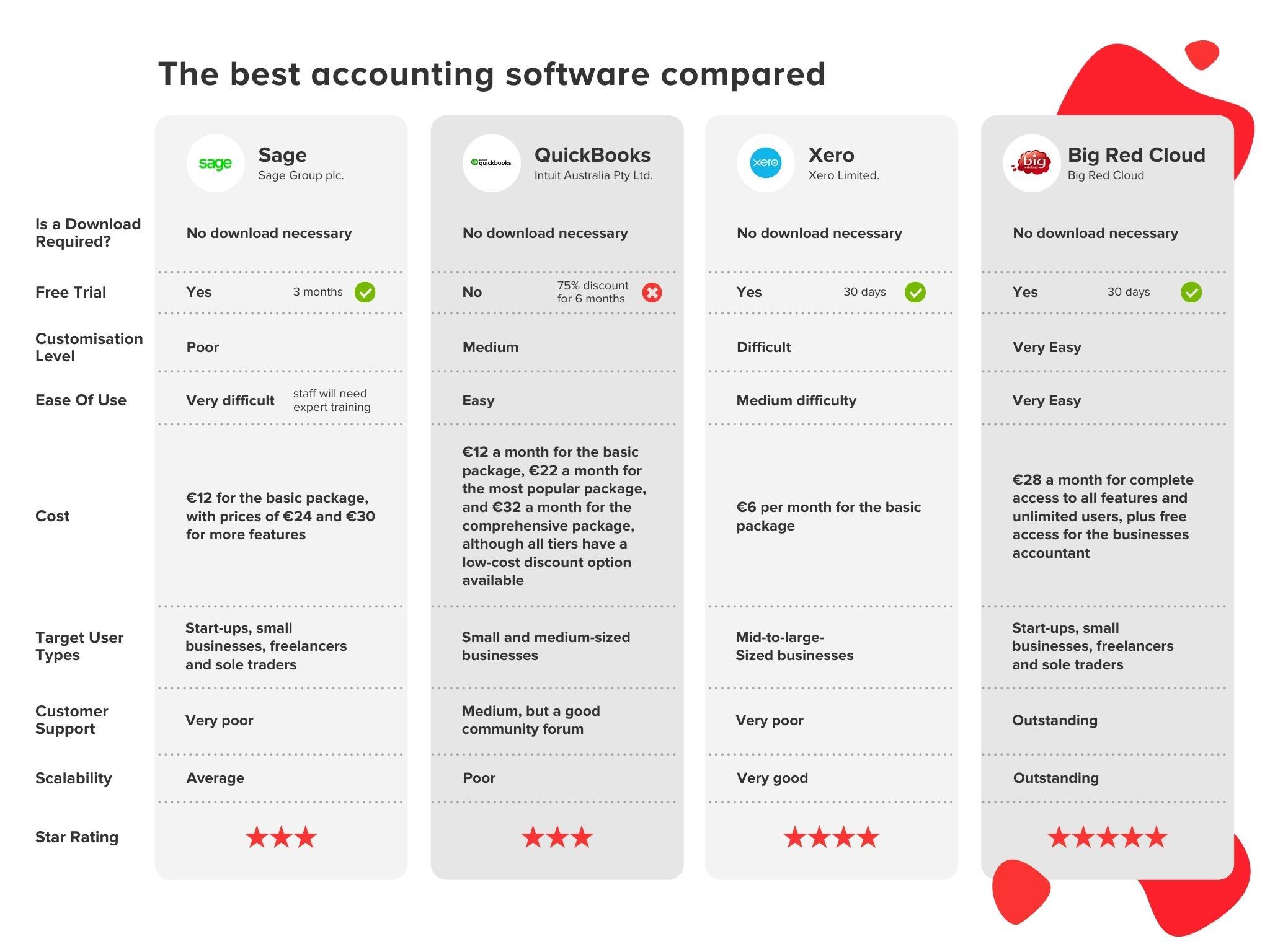Selecting the right accounting software can be challenging. Different features and pricing can make the decision difficult.
Comparing various accounting software options helps you find the best fit for your business needs. It allows you to evaluate features, ease of use, and cost. This comparison ensures you invest in a tool that supports your financial management efficiently. By understanding the differences between software options, you can make an informed choice that enhances your financial operations. Dive into our detailed comparison to find the perfect accounting software for your business. For more information on a related software solution, check out Godlike Minecraft Server Hosting, which offers excellent performance and customization options.

Credit: www.wellersaccountants.co.uk
Introduction To Accounting Software
Choosing the right accounting software can transform your business operations. It simplifies financial management, saves time, and ensures accuracy. This section will explore the basics of accounting software and why it’s essential for your business.
What Is Accounting Software?
Accounting software is a tool that helps businesses manage their financial transactions. It automates tasks like bookkeeping, invoicing, payroll, and tax preparation. With accounting software, you can track income, expenses, and generate financial reports.
Some common features of accounting software include:
- Bookkeeping: Record daily transactions.
- Invoicing: Create and send invoices to clients.
- Payroll: Manage employee salaries and deductions.
- Tax Preparation: Calculate taxes and generate tax reports.
Why Your Business Needs Accounting Software
Using accounting software offers numerous benefits for businesses of all sizes. Here are some reasons why your business needs accounting software:
- Accuracy: Minimize human errors in financial calculations.
- Time-Saving: Automate repetitive tasks and save time.
- Financial Insights: Generate real-time financial reports.
- Compliance: Ensure compliance with tax laws and regulations.
- Scalability: Support your business growth with scalable solutions.
Investing in the right accounting software can significantly improve your business operations. It allows you to focus on growing your business while ensuring your finances are in order.

Credit: www.softwareadvice.com
Key Features Of Top Accounting Software
Choosing the right accounting software can make a significant difference in managing your finances. Here are the key features you should look for in top accounting software:
Automated Financial Reporting
Automated financial reporting is a critical feature. It helps generate financial statements and reports without manual intervention.
This saves time and reduces errors. Look for software that offers customizable reports and real-time data access.
Invoicing And Billing Management
Efficient invoicing and billing management is essential. The software should allow you to create, send, and track invoices easily.
- Automated invoice generation
- Payment reminders
- Customizable templates
Expense Tracking
Tracking expenses is vital to maintain financial health. Good accounting software should provide tools to record and categorize expenses.
- Receipt scanning
- Expense categorization
- Expense reporting
Integration With Other Business Tools
Seamless integration with other business tools enhances productivity. Look for software that integrates with:
- CRM systems
- Payment gateways
- Project management tools
User-friendly Interface
A user-friendly interface is crucial for ease of use. The software should be intuitive and easy to navigate.
This ensures that users of all skill levels can operate it efficiently.
Comparative Analysis Of Popular Accounting Software
Choosing the right accounting software can significantly impact your business efficiency. This comparative analysis delves into the features and benefits of three popular accounting software options.
Software A: Overview And Benefits
Software A is known for its user-friendly interface and robust features. It offers:
- Invoicing and billing
- Expense tracking
- Financial reporting
- Inventory management
The primary benefits of Software A include:
- Ease of Use: Intuitive design suitable for non-accountants.
- Scalability: Ideal for small to medium businesses looking to grow.
- Integration: Seamless integration with popular business tools.
- Customer Support: 24/7 support with a variety of contact options.
Software B: Overview And Benefits
Software B stands out for its automation capabilities and comprehensive reporting. It includes:
- Automated bookkeeping
- Tax calculation and filing
- Payroll management
- Customizable dashboards
Key benefits of Software B are:
- Automation: Reduces manual data entry, saving time.
- Accuracy: Minimizes errors through automated processes.
- Compliance: Helps ensure tax compliance with up-to-date regulations.
- Custom Reports: Generate detailed financial reports tailored to your needs.
Software C: Overview And Benefits
Software C is tailored for large enterprises with complex accounting needs. It offers:
- Advanced financial forecasting
- Multi-currency support
- Project accounting
- Comprehensive audit trails
Benefits of using Software C include:
- Advanced Features: Suitable for complex financial operations.
- Global Reach: Supports multiple currencies and international transactions.
- Project Management: Tracks project expenses and revenues efficiently.
- Security: Enhanced security with detailed audit trails and permissions.
By understanding the unique features and benefits of each software, you can make an informed decision to best suit your business needs.

Credit: acumenconnections.com
Pricing And Affordability
Choosing the right accounting software involves evaluating many factors, with pricing and affordability being crucial. Understanding the cost structures, the balance between free and paid options, and the long-term value can help you make an informed decision.
Cost Structures Of Different Software
Accounting software often comes with varied pricing models. Some offer a flat monthly fee, while others adopt a tiered pricing approach based on features and user numbers. Here’s a quick comparison:
| Software | Monthly Fee | Features |
|---|---|---|
| Godlike Minecraft Server Hosting | Starting at $6.39 | Personal Firewall, Unique Text Editor, Full Custom Server |
| Software B | $10.00 | Basic Accounting, Invoicing, Reporting |
| Software C | $15.00 | Advanced Analytics, Multi-User Access |
Free Vs. Paid Options
Deciding between free and paid accounting software depends on your business needs. Free options might lack advanced features but can be sufficient for small businesses or startups. Paid options, on the other hand, offer more robust functionalities and better support.
- Free Software: Basic features, limited support.
- Paid Software: Advanced features, enhanced security, dedicated support.
Long-term Value And Roi
Investing in accounting software should be seen as a long-term strategy. While free options might save costs initially, paid software can provide better ROI with improved efficiency and scalability.
- Better automation reduces manual errors.
- Enhanced reporting for smarter decision-making.
- Scalable solutions grow with your business.
For example, Godlike Minecraft Server Hosting offers various plans that cater to different needs, starting from $6.39. Investing in such plans can provide high performance, ease of management, and monetization options, thus delivering significant value over time.
Pros And Cons Based On Real-world Usage
Choosing the right accounting software can be challenging. Each has its strengths and weaknesses. Here, we will compare three popular options based on real-world usage. This comparison will help you make an informed decision.
Software A: Strengths And Weaknesses
Strengths:
- User-friendly Interface: Easy for beginners to navigate.
- Comprehensive Reporting: Offers detailed financial reports.
- Integration: Seamlessly integrates with other software tools.
Weaknesses:
- Cost: Higher pricing compared to competitors.
- Limited Customization: Few options to tailor features.
- Support: Customer service response time can be slow.
Software B: Strengths And Weaknesses
Strengths:
- Affordability: Budget-friendly pricing plans.
- Mobile Access: Allows accounting on the go.
- Inventory Management: Strong tools for tracking inventory.
Weaknesses:
- Learning Curve: Can be complex for new users.
- Limited Features: Basic features compared to other software.
- Interface: The interface can feel outdated.
Software C: Strengths And Weaknesses
Strengths:
- Advanced Features: Offers advanced accounting tools.
- Customization: Highly customizable to fit specific needs.
- Scalability: Suitable for both small and large businesses.
Weaknesses:
- Expensive: Higher cost for advanced features.
- Complex Setup: Setting up can be time-consuming.
- Support: Limited support for lower-tier plans.
Recommendations For Ideal Users Or Scenarios
Choosing the right accounting software can be daunting. Different businesses have varied needs based on their size, industry, and specific requirements. Here are tailored recommendations for various users and scenarios to help you make an informed decision.
Best For Small Businesses
Small businesses require easy-to-use and affordable accounting solutions. They often need software that can handle basic accounting tasks like invoicing, expense tracking, and financial reporting.
- QuickBooks Online: Offers a user-friendly interface and essential features for small businesses.
- FreshBooks: Great for service-based businesses with its time tracking and invoicing capabilities.
- Wave: A free option that covers basic accounting needs, perfect for startups.
Best For Medium-sized Enterprises
Medium-sized enterprises typically have more complex accounting needs. They might require features like inventory management, project accounting, and advanced reporting.
- Xero: Provides robust features and integrations suitable for growing businesses.
- Sage 50cloud: Offers comprehensive accounting tools with strong inventory management.
- Zoho Books: Integrated suite that scales with business growth, offering advanced features.
Best For Large Corporations
Large corporations need powerful accounting software that can handle extensive data and complex financial operations. They often require software with high customization, scalability, and advanced analytics.
- NetSuite ERP: A complete business management suite offering extensive customization and scalability.
- SAP Business One: Known for its robust features and ability to handle large volumes of data.
- Microsoft Dynamics 365: Offers seamless integration with other Microsoft products and advanced financial tools.
Best For Freelancers And Self-employed Professionals
Freelancers and self-employed professionals need simple, cost-effective accounting software. They usually seek solutions that can manage invoicing, expense tracking, and tax preparation.
- FreshBooks: Offers excellent invoicing and expense tracking tailored for freelancers.
- QuickBooks Self-Employed: Ideal for tracking income, expenses, and preparing for taxes.
- Wave: Free accounting software that covers the basics, perfect for freelancers.
Frequently Asked Questions
What Is The Best Accounting Software?
The best accounting software varies based on business needs. QuickBooks, Xero, and FreshBooks are top choices for small to medium businesses.
What Software Do Accountants Use The Most?
Accountants commonly use software like QuickBooks, Xero, and Sage. These tools offer comprehensive accounting solutions.
Is There Any Accounting Software That Is Not A Subscription?
Yes, there is non-subscription accounting software available. Examples include QuickBooks Desktop, Sage 50, and GnuCash.
How Do I Choose An Accounting Software?
Choose accounting software based on your business needs. Consider features, ease of use, scalability, and cost. Research reviews and get recommendations.
Conclusion
Choosing the right accounting software is crucial for your business. Each option has distinct features and benefits. Evaluate your needs and budget. Consider ease of use and customer support. Make an informed decision for your accounting needs. For software and server hosting, check out Godlike Minecraft Server Hosting. It offers performance, customization, and security. Visit their site for more details and pricing. Happy accounting!





